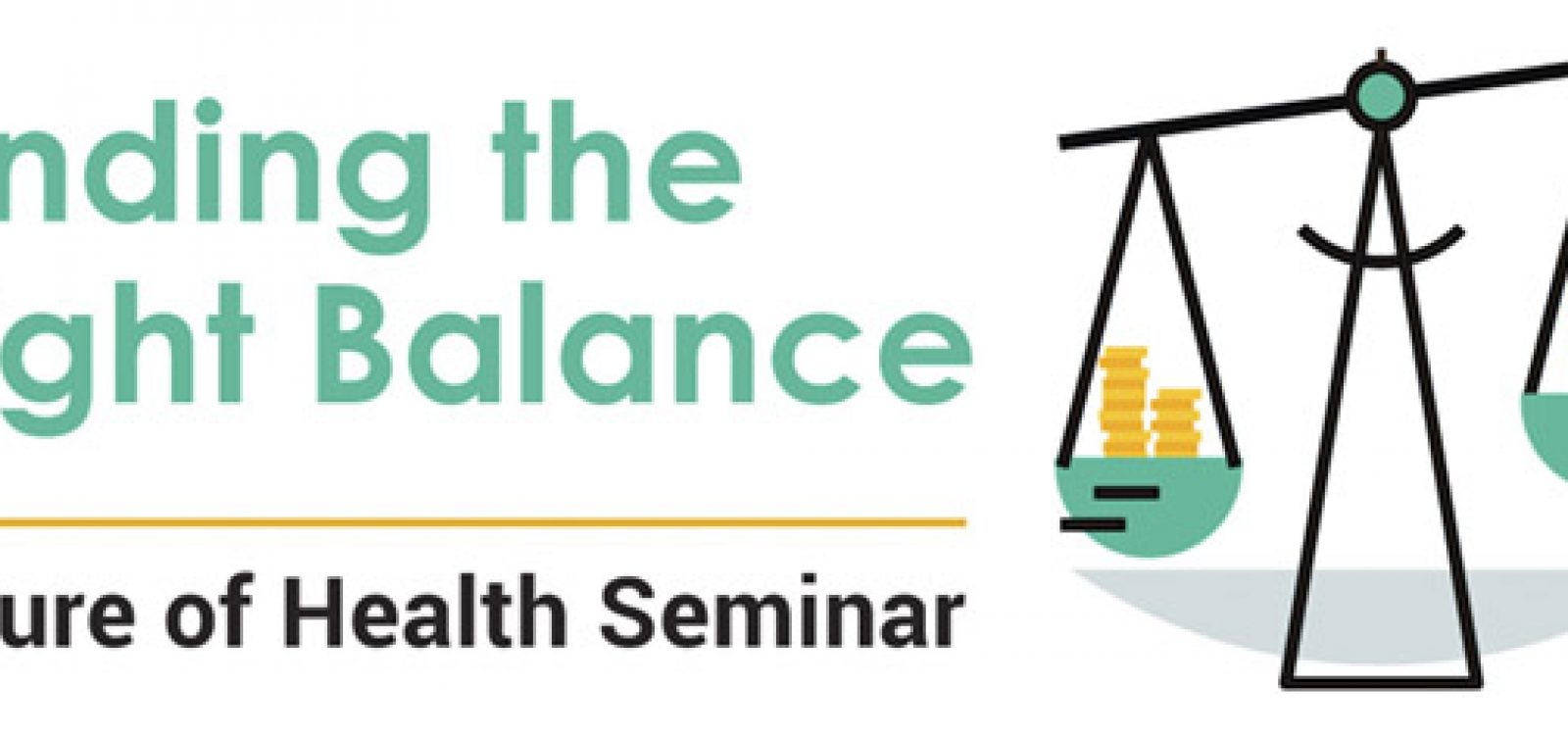
The Health Insurance Challenge in Australia
Ignatius Li of Deloitte and the Institute’s Health Practice Committee looks at some key challenges facing the health sector, including private health insurance reforms, ahead of the ‘Future of Health’ Seminar in Melbourne next month.
What does the Seminar theme Finding the Right Balance mean?
Finding the right balance encapsulates the ongoing challenge of how to build a sustainable health system.
To be in balance means for example finding the “right” mix of funding between governments, individuals, private health insurance and other insurance schemes; it means finding the “right” balance between public and private healthcare providers; empowering patients to get the “right” balance in terms of how and where they should be treated and the volume of those treatments. It means for example deciding on the “right” mix of care that is preventative in nature versus reactive in nature.
We can see that a health system is in fact the sum of these choices that are being made all the time, whether it be by our politicians setting health policy, the owner of a private hospital deciding on how to invest their capital, a GP advising their patient, or a private health insurer deciding what benefits should be covered. Their motivations may not always be aligned, ultimately reflecting a balance act between for example better clinical outcomes, keeping health spending down or increasing profits.
When we reflect on the current balance of the health system in Australia, we must ask whether we have indeed found the “right’ balance and whether that balance is still “right” for the future.
What do you see as the key challenges facing the health sector currently?
The health system has always been the focus of intense media and community scrutiny. As a consumer good, health care is a very personal one. It is therefore unsurprising that health policy seems to get more attention than many other policy areas.
In Australia, the media focus does tend to be on Medicare and the public hospital system. However, private health insurance and in particular the challenges of affordability, consumer understanding and hospital contracting have become more and more prominent.
Each year, the premium increases being approved by the Health Minister are inevitably higher than wage and general inflation, driven by factors such as ageing and medical advancements. It is a challenge for health insurers to explain to their customers why this occurs. This is not helped by a perception that the value of private health insurance is declining, which is further exacerbated by a mismatch between what policyholders think they are covered for versus what they are actually covered for. In addition, health insurers’ attempts to drive more of a value based approach to their contracting with private hospitals have met with resistance from various stakeholder groups.
These challenges are ultimately about how to achieve as much common interest when balancing between competing stakeholder interests. It all makes for an exciting sector for actuaries to work in. These challenges really sharpens our minds on what is the “right” balance for the health sector.
How are consumers and government responding?
For years, private health insurance participation has been growing. However, recent experience has not been as strong with consumers dropping cover or downgrading, driven in parts by affordability pressures, a declining value perception and confusion about product coverage. Responding to these consumer concerns, the government has been looking into a number of potential reforms that seek to address these issues. Among other things, they are seeking to standardise industry terminology, improve consumer understanding of private health insurance and the effectiveness of product categorisation in assisting with that, and the types of benefits covered.
The private health insurance industry is keenly awaiting for news on these reforms from government. In anticipation of these developments, one of our plenary sessions is dedicated to discussing the reforms.
How are actuarial skills assisting in this space?
In this current environment of uncertainty, our actuarial skills are well equipped to help private health insurers consider their product offerings, pricing, capital, the strategic implications for any legislative changes, identifying opportunities in the market, to name a few.
There are lots of moving parts in the health system, with competing interests by various stakeholders. Actuaries bring a deep understanding of these dynamics and in particular, how to quantify and make sense of the whole sector as well as the impact on private health insurance.
Why is the Future of Health Seminar an important conference at the present time?
With private health insurance reforms currently under consideration, the conference is very timely. There is a role for actuaries to demonstrate the skills and knowledge they bring, and to have our views heard. The seminar will bring actuaries together with finance professionals and others working in private health insurance. It will be a useful opportunity to get industry people together and to discuss on the ways forward.
What unique insights will some of the Plenary speakers share?
The event has been expanded this year to run for a full day instead of the half day last year. With four plenary sessions, I’m expecting to get unique insights throughout the day. We will start off with an outline on the current balance in the system and where the challenges lie. To challenge our thinking on this, we have prominent health industry people from academia and government backgrounds.
With the help of industry experts and practitioners, we then dive into the challenges of balancing the system. Specifically, we will have a dedicated plenary each on customer centred health care and health analytics. Our speakers will include medical professionals and data scientists respectively. As the pay-off for these initiatives tend to be long term, it very much fits into the seminar theme of finding the right balance. I’m sure our speakers will bring their unique angle to the challenges.
And as mentioned earlier in this article, there will be a plenary on the private health insurance reforms. We are fortunate to have a number of corporate leaders from industry sharing their thoughts on the strategic outlook.
The Future of Health Seminar will be held in Melbourne on 8 June 2017. View the Program Snapshot and Register to attend today.
CPD: Actuaries Institute Members can claim two CPD points for every hour of reading articles on Actuaries Digital.









